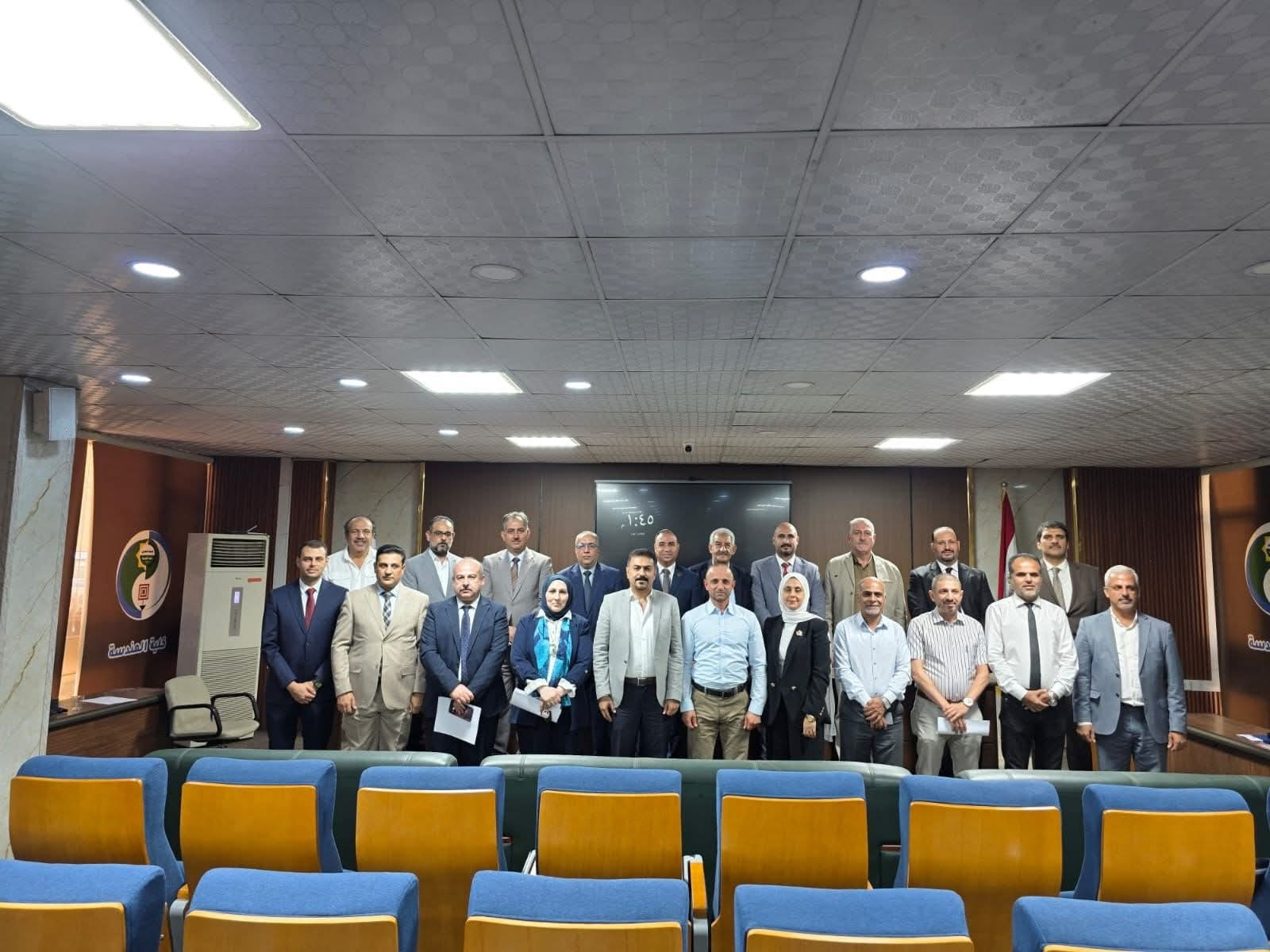Visitors: 25542816 Views
Done By: Department of Computer Engineering
Post Date: 2025-07-01
Last Browse: 2025-07-07

On Tuesday, July 1, 2025, the College of Engineering at Al-Nahrain University held a meeting of the Industrial Advisory Council for the 2024-2025 academic year. The meeting was chaired by Professor Dr. Iyad Murad Takhakh, Dean of the College, and attended by a select group of representatives from various industrial sectors and state institutions, along with representatives of the Iraqi Engineers Syndicate, a number of faculty members, and heads of academic departments. The meeting was held in the Tigris Hall within the College building, under the direct supervision of the College Deanship. The meeting was attended by a number of academics and industrial experts, affirming the College's commitment to expanding its partnerships with engineering and industrial entities, contributing to aligning engineering education outcomes with the reality and evolving requirements of the labor market. The meeting began with a welcoming speech by the Dean, who then presented the College's most prominent efforts in developing its academic programs, most notably the establishment of the Department of Artificial Intelligence and Robotics Engineering and the Department of Drone Engineering, along with the ongoing modernization of the nine other engineering departments, which constitute essential pillars of the University's engineering education system. The discussion focused on enhancing integration between academic education and practical application, developing curricula to keep pace with technological developments, activating student field training, and linking graduation projects to real-life industrial challenges. During the discussions, attendees from the industrial, union, and academic sectors presented practical ideas and development proposals. These included supporting student field training, the need to involve the industrial sector in developing a curriculum update roadmap, and introducing modern applied courses, such as smart devices and artificial intelligence in engineering design. They also emphasized the importance of reviewing learning outcomes and enhancing graduates' practical skills to align with market requirements. The meeting concluded with several recommendations, most notably: 1. Strengthening partnerships with the industrial and union sectors by signing memoranda of understanding and expanding practical training opportunities. 2. Involving industry experts in updating curricula and evaluating educational outcomes. 3. Adopting a mechanism to continuously evaluate graduate skills in cooperation with employers and review learning outcomes (LOs). 4. Holding an annual forum that brings together students and graduates with supporting companies and institutions to facilitate employment and transfer practical experience. 5. Establishing an electronic platform to facilitate coordination between the college and the industrial sector in the areas of training and projects. At the conclusion of the meeting, the Dean of the College emphasized the College's commitment to translating the Council's recommendations into concrete steps and activating their implementation.